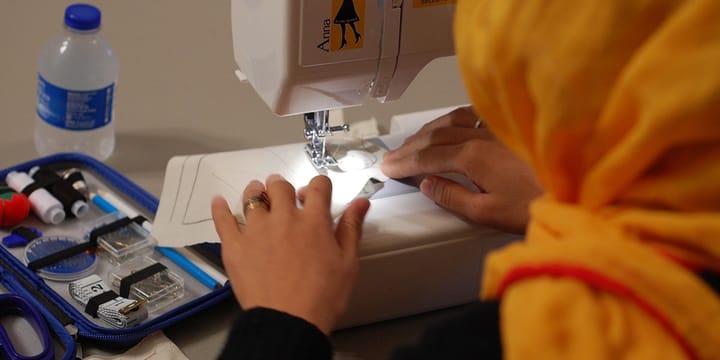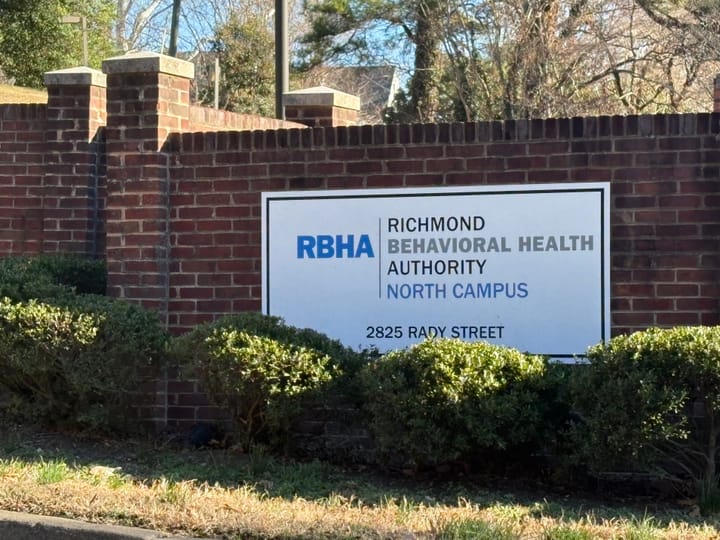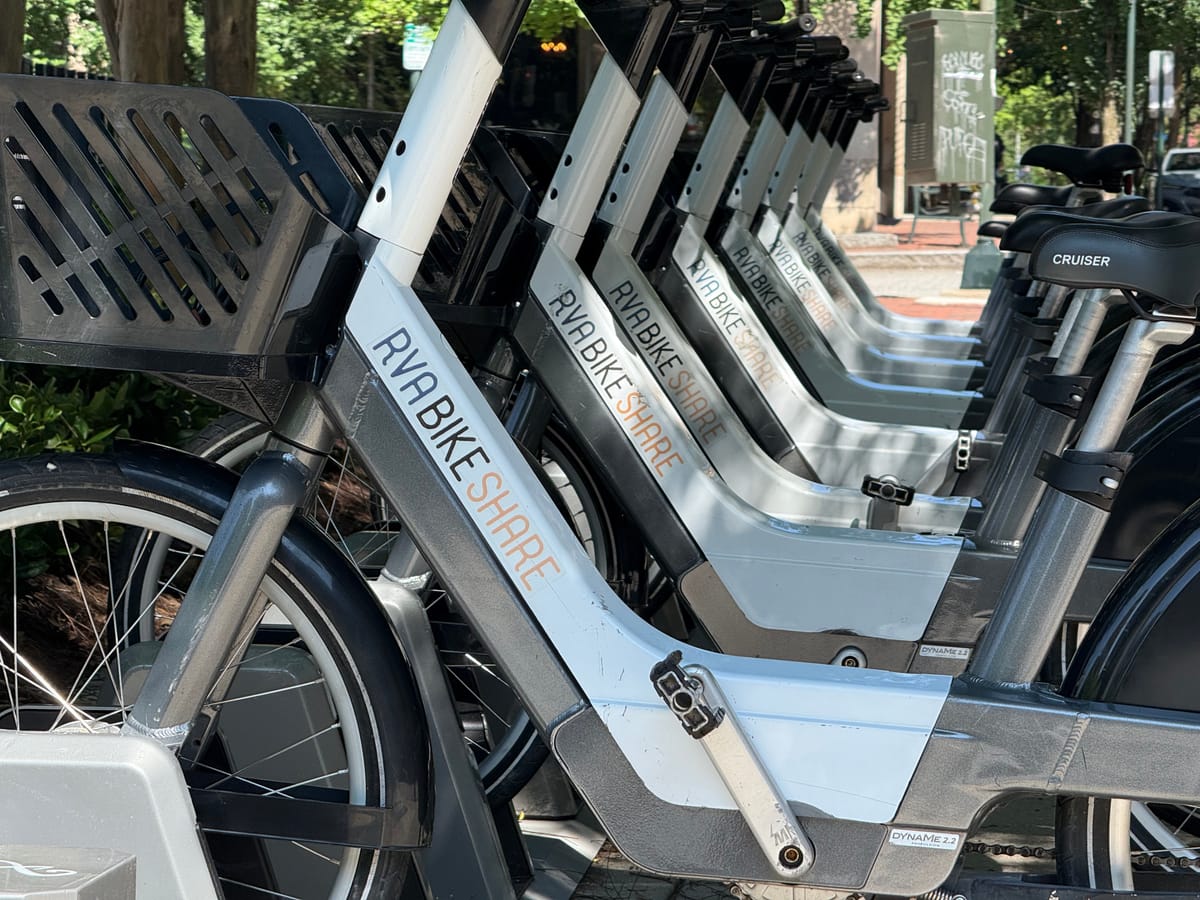
E-scooters are used more than Richmond’s bike share, but the city views both as important transport options
Three companies currently pay for licenses to operate e-scooters in Richmond, a program that nets the city $168,750 in revenue each year.
Those scooters have proven to be more popular with transit users than the RVA Bike Share program, which was launched in 2017 and has a number of docking stations around town.
RVA Bike Share is operated by the city, which estimated a $200,000 annual loss to run the program. However, city officials emphasized the importance of operating multiple types of transit options.
Both fall under the term micromobility, an industry which is rapidly on the rise in cities across the United States. Micromobility includes small personal transportation vehicles such as bikes and electric scooters.
The city sees it as an amenity to provide residents and visitors sustainable and inexpensive modes of transport, whether it be for leisurely exploring the city or commuting to work every morning.
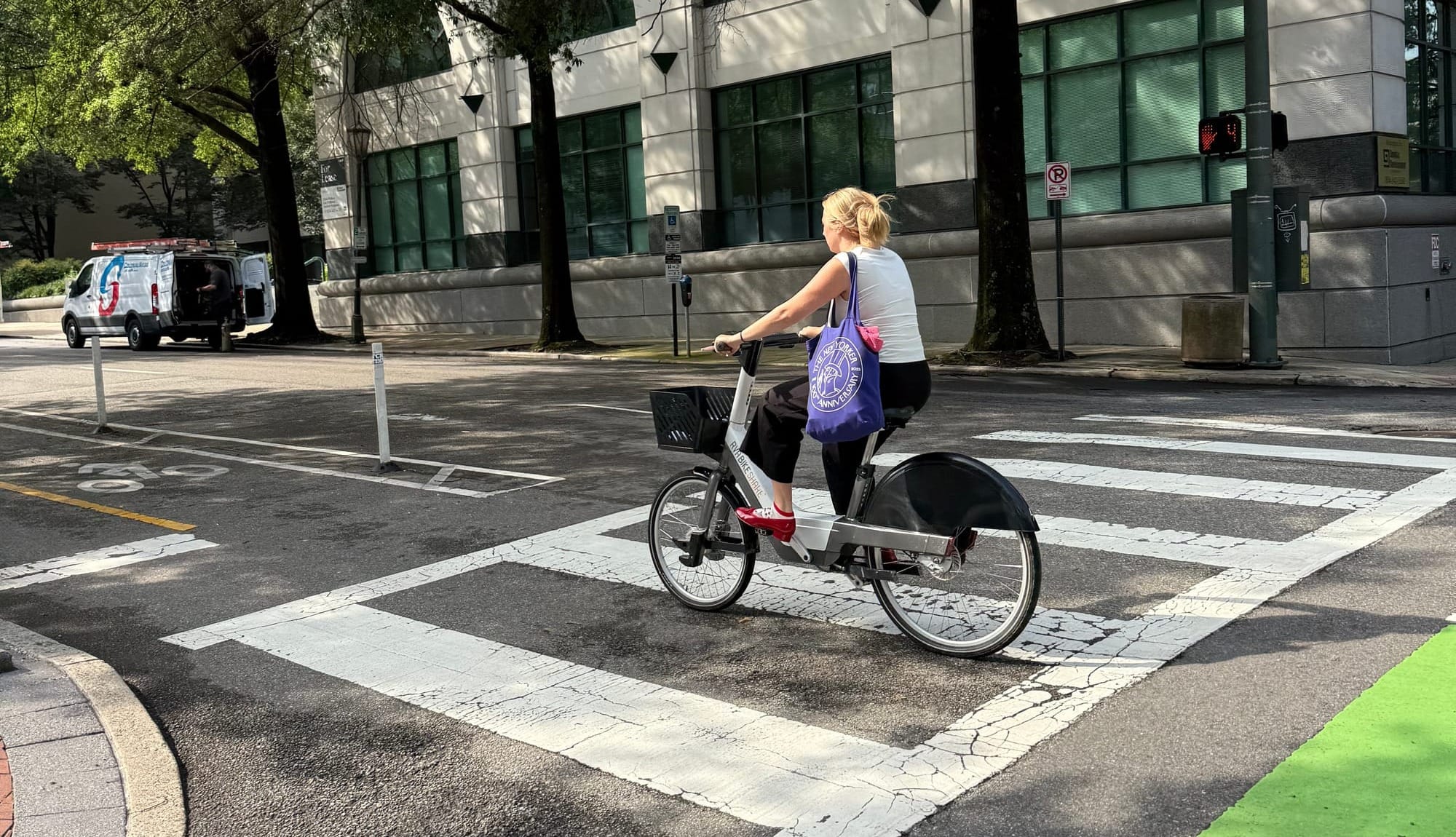
RVA Bike Share
The RVA Bike Share system first launched in 2017 and was originally operated with the help of Canadian company Bewegen Technologies.
However, in May 2023 the company declared bankruptcy, temporarily shutting down the program until its relaunch that August with new contractor WeGoShare.
WeGoShare, an information technology solution company specializing in shared electric mobility, provides the software infrastructure for the RVA Bike Share program. This includes the program’s website and mobile applications. The city pays $75,000 a year for those services.
RVA Bike Share is open 24/7 to Richmond residents and visitors as an option to get around and explore the city. The system includes a network of 22 stations and 220 bikes, according to their website.
The system includes both traditional pedal bikes and pedelec bikes — low-powered electric bicycles.
Annual passes are $96, day passes are offered for $6, or riders can register at any station kiosk for $1.75 per ride per bike.
According to RVA Bike Share’s website, the most popular bike check-out stations are at Brown’s Island, Monroe Park, and the Canal Walk. The website also shares that 2,492 total rides have been taken so far in 2025, with 8,072 miles traveled.
The city estimated a $200,000 loss each year to run the program.
Dironna Moore Clarke, a deputy director of the city’s Department of Public Works and head of its Office of Equitable Transit and Mobility, oversees RVA Bike Share. Clarke stressed the importance of multiple transportation options for residents and visitors, including bikes.
“Richmond is the pillar example of a multimodal city. Multimodal means having those alternatives and options when trying to move about the city,” Clarke said. “We really want to be able to provide those options to the citizens around Richmond when it comes to how you can move about.”
Clarke gave the example of city visitors who arrive by plane, and do not have their cars. Instead of renting a car to get around the city, they can utilize the bike share during their visit.
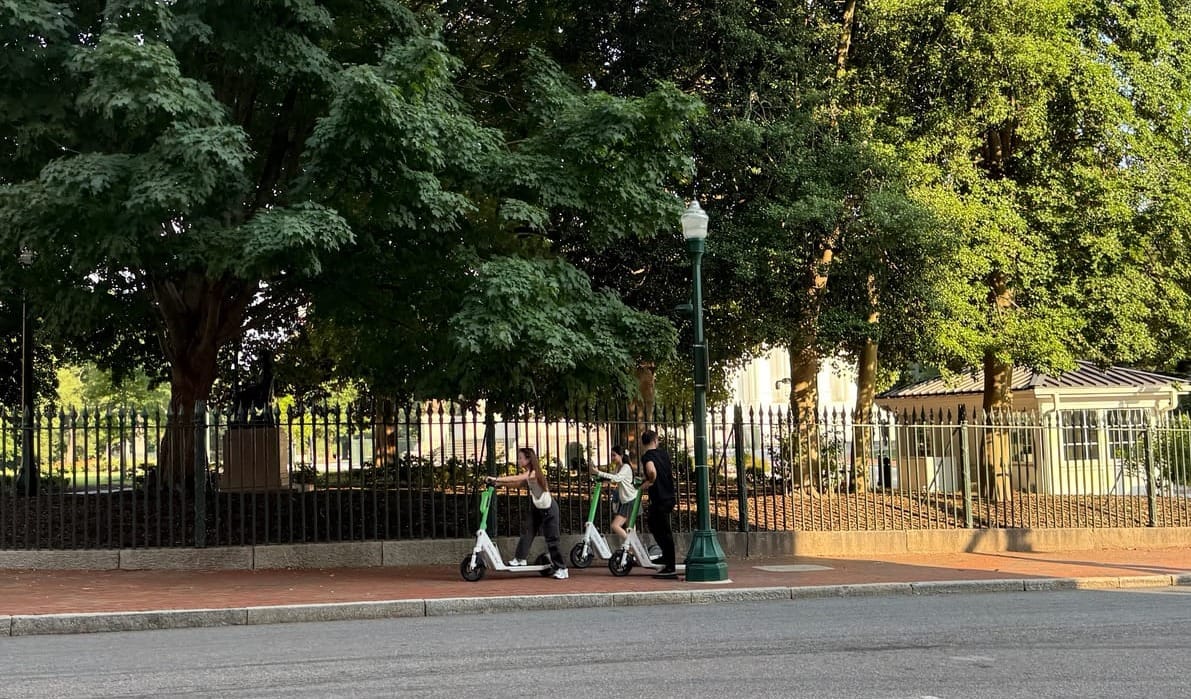
E-scooters
Richmond’s multimodal system does not end with bikes. The city also permits three micromobility companies to operate here — Bird, Lime and Spin. All three companies manage e-scooters in the city, and Bird also manages electric bikes.
The maximum allowable number of e-scooters permitted to each vendor is 500 devices, with a minimum of 201 devices. Each vendor pays an annual permit fee of $56,250 in order to operate in the city.
Riders must use each vendor’s mobile app to access vehicles across the city. The apps show riders where the closest e-scooters are located and are needed to unlock them. There is no charge to download the apps, there is only a charge once you ride a vehicle.
Lime has operated in Richmond since 2021. According to Lime’s Director of Government Relations Erika Duthely, the company has had more than 85,000 riders take more than 300,000 trips in the city since they began operating here.
“[E-scooters] sort of fill a gap where perhaps if your nearest rail station or bus stop is a bit of a distance from your destination, it can help fill that gap for you,” Duthely said.
Just like Bird and Spin, Lime works alongside the Department of Public Works to provide the city with an alternative transportation service.
“We work very closely with the Department of Public Works, and they’ve been a fantastic partner,” Duthely said. “I think we have similar goals in wanting to provide another transportation resource for people to get around Richmond.”
Bird has operated in Richmond since 2019, besides a brief hiatus in 2020 due to the COVID-19 pandemic.
Similar to Duthely, Bird’s Director of Government Partnerships Austin Spademan said that e-scooters may also be a less intimidating form of micromobility compared to bikes, specifically for those that do not know how to ride a bike.
“I think e-scooters…sort of broaden the tent of people who can use a micromobility service,” Spademan said. “Not everybody can ride a bike, but people that don't feel comfortable riding a bike…do feel comfortable enough with the approachability of a scooter.”
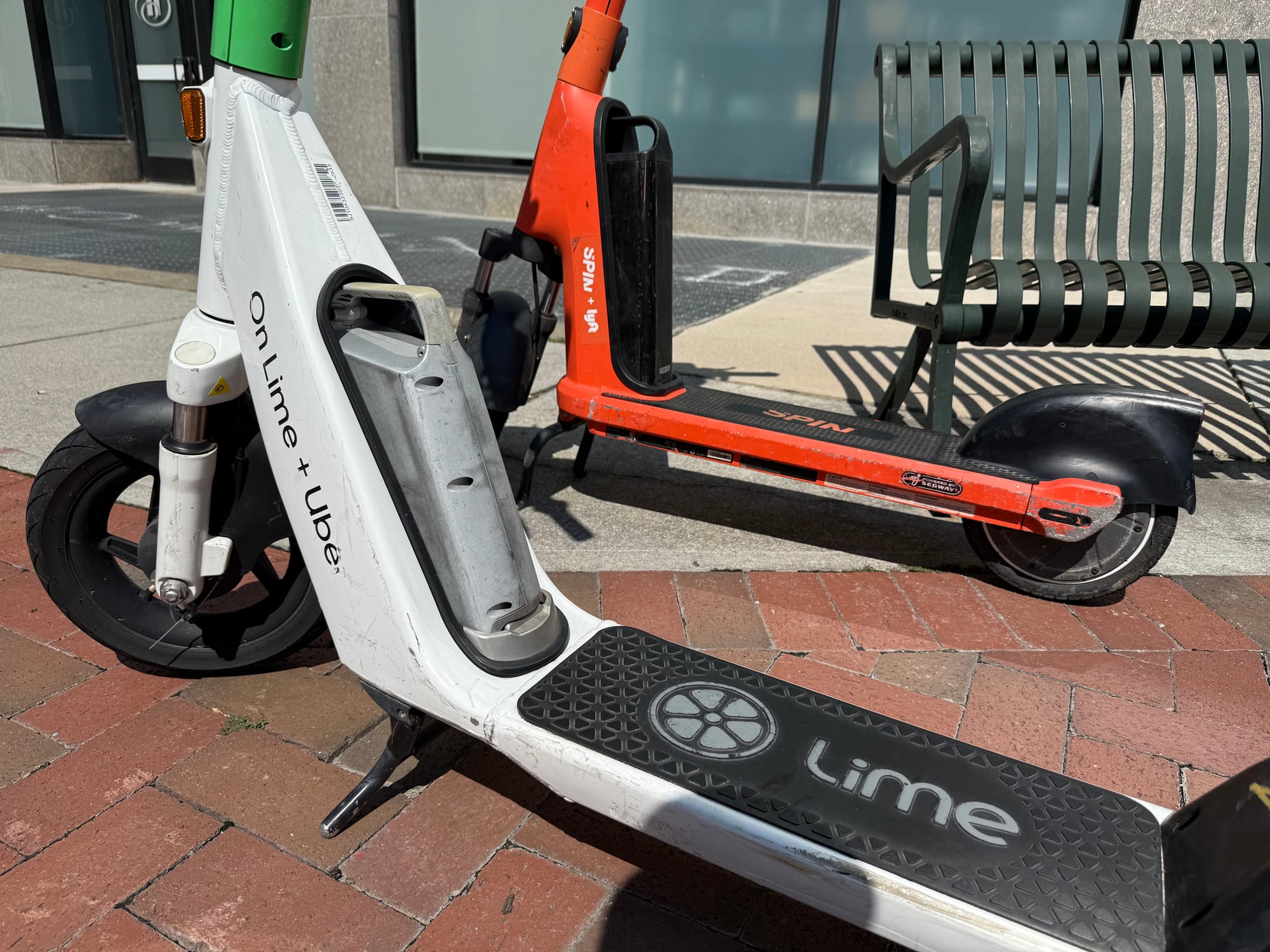
E-scooter ridership is on the rise and growth is expected to continue in the coming years, according to Duthely and Spademan.
“We've seen continual growth in the market, as people become more accustomed to the devices, it becomes more of a transportation resource for people,” Duthely said, sharing that Lime’s ridership in the city doubled from May 2024 to May 2025.
Duthely mentioned the increased demand for e-scooters in Richmond specifically, and said that Lime expects this growth to continue.
The Richmonder is powered by your donations. For just $9.99 a month, you can join the 1,000+ donors who are keeping quality local journalism alive in Richmond.
A zero-sum game?
However, the RVA Bike Share numbers have not grown in recent years. Rather, they've plateaued.
According to Clarke, RVA Bike Share’s ridership has plateaued since 2021 — two years after Bird started operating and the same year Lime started operating in the city. This may lead to the question: Does the rise of e-scooters threaten RVA Bike Share’s success?
When asked this question, Clarke first explained that there is no competition for city funds because the e-scooters are permit-based, while RVA Bike Share is operated in-house. She added that the e-scooter permit fees contribute to RVA Bike Share’s funding.
“The scooter program itself helps to support the bike share. The permit fees that we collect from the scooter companies actually help to offset that cost of operating [the bike share],” she said.
Clarke added that since RVA Bike Share’s inception in 2017, the program has yet to make a net profit on its own.
Still, Clarke does not see competition between the two forms of micromobility, but instead a conjoined effort to reach a shared goal of making transportation more accessible for Richmonders.
“We don't think that they're competing. We think that we're providing fair options… We don't think that one is more important than the other,” she said.
Spademan expressed a similar sentiment, explaining that e-scooters may be more applicable in certain situations and vice versa.
“There are times when a bike trip is more applicable,” he said. “You want to go further distance, maybe you have groceries. You need the baskets on the bikes to be able to carry those groceries,” he said.
Duthely noted that e-scooters tend to be less physically exerting than bikes. On a particularly hot day, micromobility users may lean towards an e-scooter if they do not want to exert themselves by pedaling.
Duthely cited Capital Bikeshare in Washington, D.C., which she said was a successful bikeshare company located in a city with high e-scooter ridership, specifically with Lime scooters.
“We don't really view bike share systems as competition,” she said. “I think the approach that we take and that our city partners take is that there's a transportation ecosystem, and everything sort of has a role.”
In all, RVA Bike Share and e-scooter companies see their work as collaboration, not competition. Together, they are working towards their shared mission of increasing transportation accessibility and sustainability.
“It's kind of a team player sport, in the sense that we all view our mission as the paramount thing that we're focused on – of making Americans ditch the car,” Spademan said.
Clarke said that she looks forward to seeing micromobility use continue to grow in the city, for both bikes and e-scooters. She hopes to raise ridership numbers with “bigger marketing for both, but especially the bike share.”
Specifically, Clarke mentioned plans for investment in Richmond’s Southside, such as the expansion of the Fall Line Trail. She also mentioned potential projects for bike lane barriers across the city.
“If we can have those different modes [of transportation] out there for people, then we've done our job,” she said. “That is what we want to do, to really give people that access to opportunity. That's really what it's about.”
The Richmonder is powered by your donations. For just $9.99 a month, you can join the 1,000+ donors who are keeping quality local journalism alive in Richmond.


